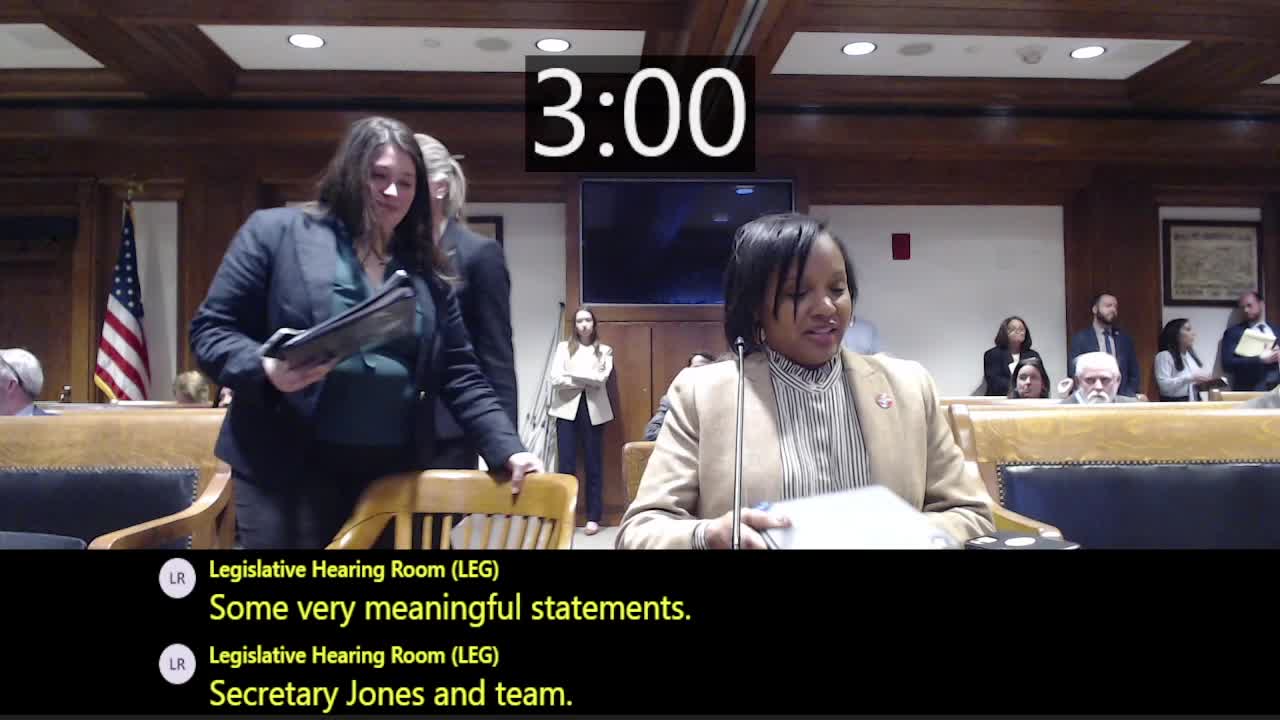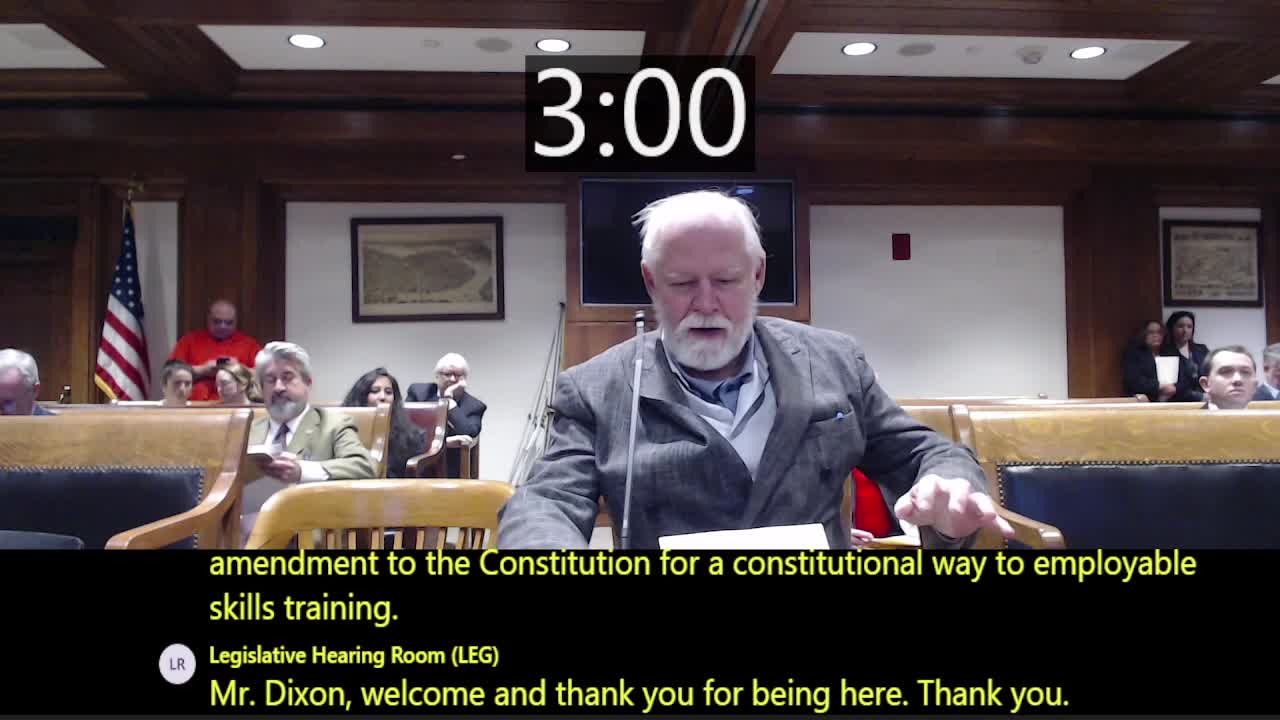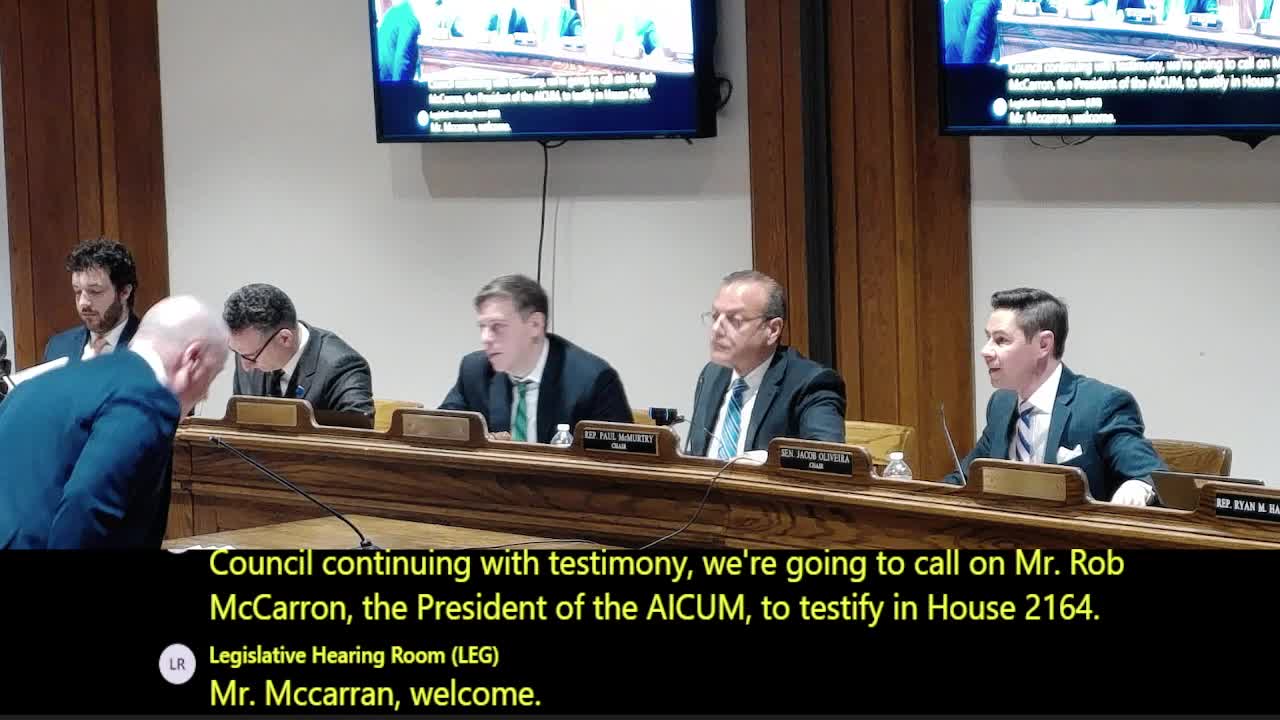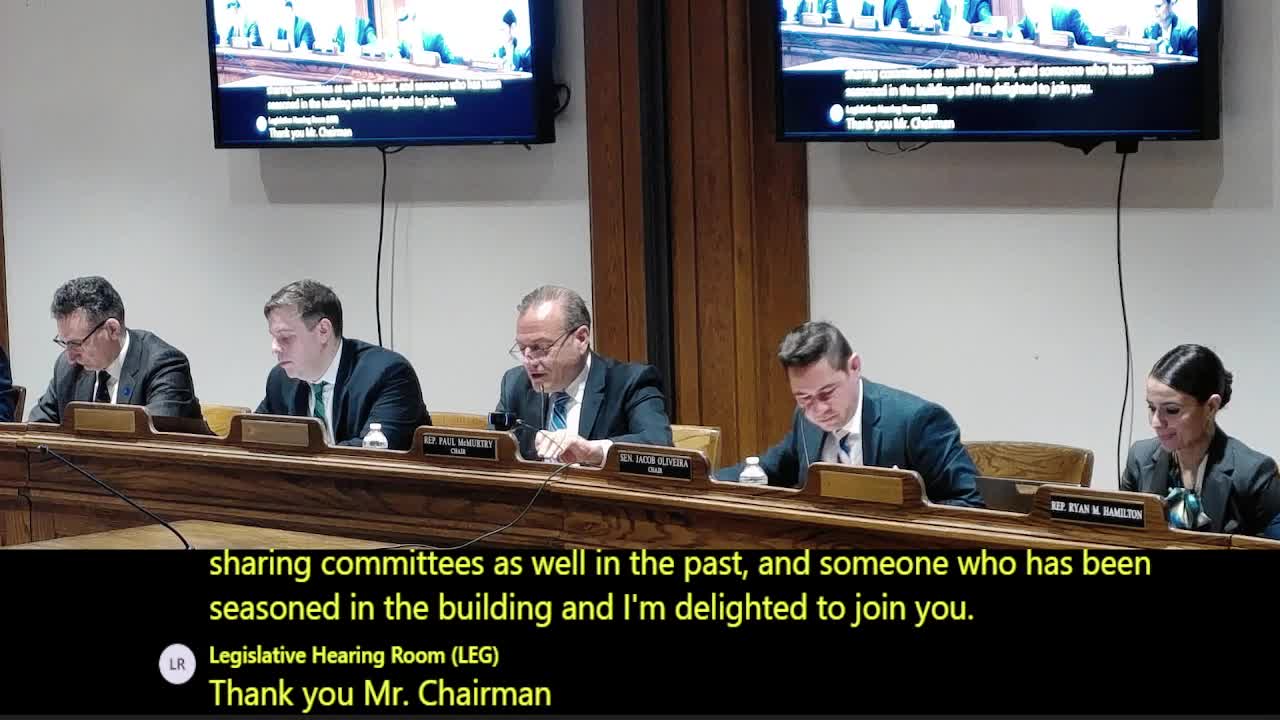Article not found
This article is no longer available. But don't worry—we've gathered other articles that discuss the same topic.

State Labor Secretary Outlines Workforce Strategy, Apprenticeships and UI Modernization

Witness Urges Constitutional Amendment to Guarantee 'Employable Skills' Training

Private and Nonprofit Colleges Seek Narrow Wage‑act Fix After Class‑action Suits

